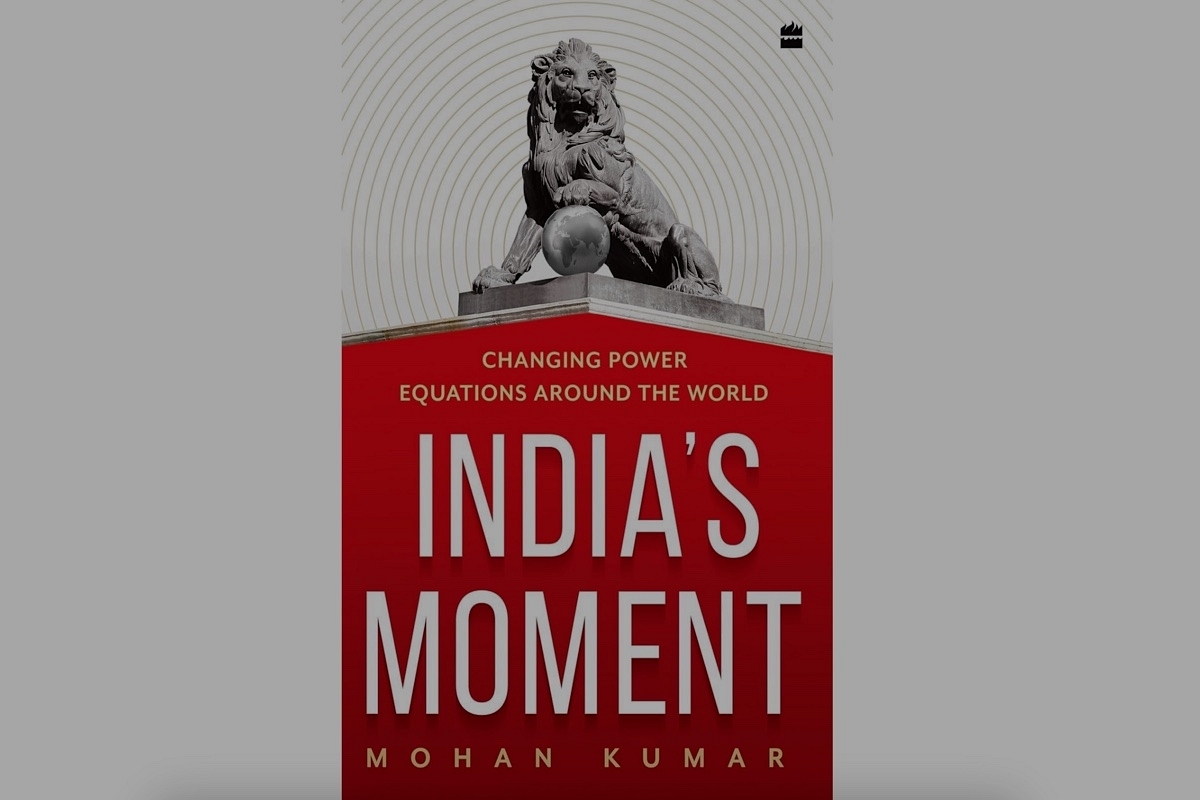Books
Zooming In On The Evolution Of Indian Foreign Policy

The cover of Mohan Kumar's book India's Moment: Changing Power Equations Around the World.
India's Moment: Changing Power Equations around the World. Mohan Kumar. HarperCollins India. 2023. Pages 292. Rs 420.
Today (26 January), India celebrated 75 years as the world's largest democracy. This year's themes for the Republican Day parade are 'Viksit Bharat' — developed India — and 'Bharat-Loktantra ki Matruka' — India as a mother of democracy.
India, with one-fifth of the world's population, boasts the third to fifth-largest economy, depending on the measurement criteria. Despite this, it is home to the world's largest poor population, contributing only 8 per cent to the global gross domestic product (GDP).
However, India has lifted 248 million people out of multidimensional poverty in the last decade alone. The nation has successfully carved its place in international trade, benefiting its economy through various policies, one of which is its foreign policy. Surprisingly, contemporary commentators have written very little about it.
From the 1950s to the 2020s, India has come a long way in economic and social progress, impacting its global standing and ability.
“India's ambitions, influence, and margin for manoeuvre in negotiating with the rest of the world rests substantially... on its economic and military clout,” Mohan Kumar, a former diplomat and now an academician writes in India's Moment: Changing Power Equations Around the World.
But how does India navigate the world for its benefit amid geopolitical pressure and domestic politics? Why does it present its economic concerns against proposals at international forums? How does India sign agreements that leave enough space for domestic policymaking?
Kumar responds to these questions with his proposed ‘Integrated Framework’ in his book. This framework includes the Gandhi litmus test, policy space, geopolitical imperatives, domestic politics, multilateralism, and realpolitik and material gain.
In the pre-WTO (World Trade Organization) days, when General Agreement on Tariffs and Trade (GATT) was in place, India maintained a defensive position in international trade-related discussions due to the skewed dynamics favouring developed countries.
India fought vehemently against the Trade Related Aspects of Intellectual Property Right (TRIPS) agreement in the Uruguay Round, as it went against the interests of its farmers and domestic pharmaceutical industries.
A year after the formation of the WTO, the US, EU, Japan and Canada insisted on bringing new issues into discussions, neglecting existing implementation issues faced by developing countries. India strongly opposed this move.
At this juncture, the usefulness of the WTO is debatable. Like other nations, India is entering into free trade agreements (FTAs) with individual countries, giving them access to its market while gaining access to theirs.
However, many plurilateral agreements are being forged without India, and according to the author, India is missing a preferential trading system due to its adherence to multilateral agreements.
Another vital issue that Kumar touches on in the book is climate change. He does the necessary differentiation between the 'lifestyle emissions' of the developed countries and the 'survival emissions' of the developing countries.
In the initial years of discussions, New Delhi pushed hard against the West and its allies for not having any agreements that hindered the growth of the Indian economy and restricted the policy space.
However, over the years, New Delhi realigned its position on the issue of becoming a net-zero country in terms of carbon emission. The Paris Accord is an important event associated with this realignment.
The author, an ambassador of India to France in 2015, narrates the Indian stand in detail with a personal touch. He also focuses on India's stand on various geopolitical wars in another chapter.
The book, filled with valuable insights and insider accounts, is an excellent account of understanding the evolution of Indian foreign policy. It is a must-read for those interested in why India takes specific stands on certain issues. Therefore, Western analysts who continuously criticise India should peruse this book. It could help bring about a sense of understanding.
Support Swarajya's 50 Ground Reports Project & Sponsor A Story
Every general election Swarajya does a 50 ground reports project.
Aimed only at serious readers and those who appreciate the nuances of political undercurrents, the project provides a sense of India's electoral landscape. As you know, these reports are produced after considerable investment of travel, time and effort on the ground.
This time too we've kicked off the project in style and have covered over 30 constituencies already. If you're someone who appreciates such work and have enjoyed our coverage please consider sponsoring a ground report for just Rs 2999 to Rs 19,999 - it goes a long way in helping us produce more quality reportage.
You can also back this project by becoming a subscriber for as little as Rs 999 - so do click on this links and choose a plan that suits you and back us.
Click below to contribute.
Latest